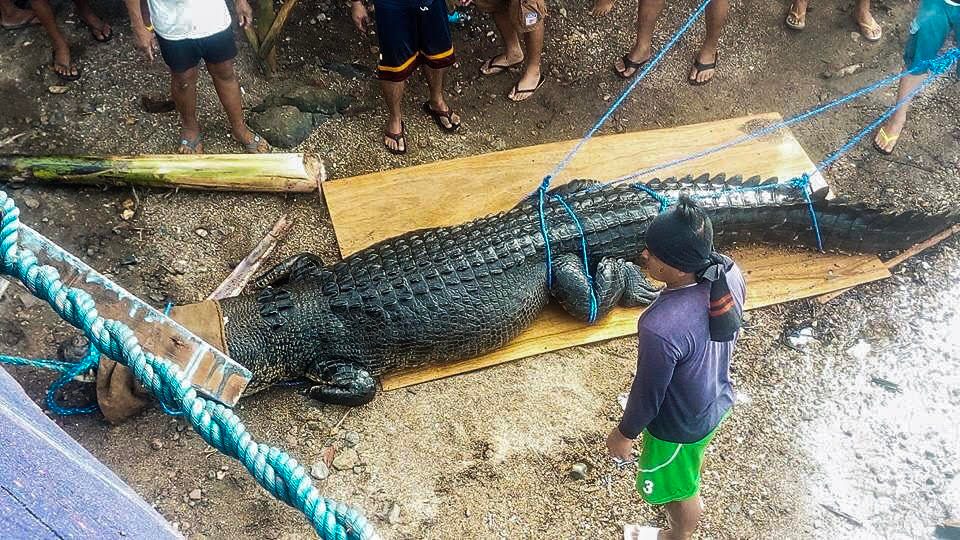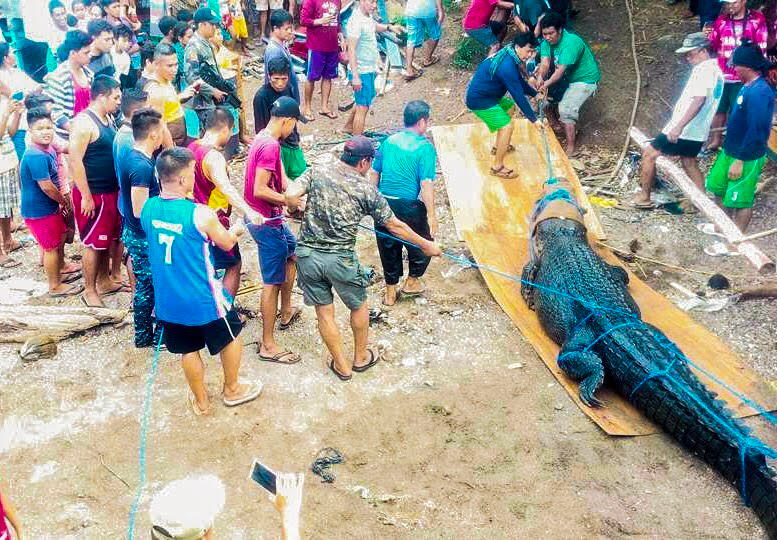SUMMARY
This is AI generated summarization, which may have errors. For context, always refer to the full article.

PALAWAN, Philippines – Environmental authorities captured on Saturday, December 1, a saltwater crocodile believed to have killed a fisherman in the island town of Balabac.
The suspected “problem crocodile” is 15.6 feet long and weighs around 400-500 kilograms, according to Jovic Fabello, spokesman of the Palawan Council for Sustainable Development (PCSD).
Fabello told Rappler on Sunday, December 2, that the crocodile was entrapped around 2 pm on Saturday by a composite team of the PCSD and the Palawan Wildlife Rescue and Conservation Center (PWRCC), also known as Crocodile Farm.
He said the crocodile would be brought to mainland Palawan and then to Puerto Princesa City if sea conditions improve on Monday, December 3. In the meantime, it is under the safekeeping of the Coast Guard Substation and 2nd Special Operations Unit-Maritime Group in Balabac.
At PWRCC, experts will pump the stomach of the crocodile to confirm if it did attack the fisherman.
Authorities recovered last Wednesday, November 28, the mutilated body of 33-year-old Cornelio Bonete, a resident of Barangay Poblacion 5, whom relatives reported missing after he checked his fishing boat the day before.
Bonete’s body was found in Sitio Bual, Barangay Malaking Ilog. His right arm and left foot were both severed from his body, while his right foot was broken. There were also multiple wounds all over the victim’s body, most probably crocodile bites, police said.

Crocodile attacks are not uncommon in Balabac, as it is home to many saltwater crocodiles. Last October, a 16-year-old high school student survived a crocodile attack also in Barangay Poblacion 5.
Experts reminded Balabac residents to be wary as the crocodiles’ breeding or mating season happens from November to February. They are usually very active and highly protective of their territories at this time. Egg-laying season, meanwhile, is from March to August.
Environmental authorities recently conducted a crocodile awareness campaign in affected barangays in Balabac. They also installed warning signs reminding residents to stay away from river swamps identified as crocodiles’ habitat.
The years of human-crocodile conflict in Balabac, experts believe, may be traced to crocodile habitat destruction due to mangrove conversion, among others. – Rappler.com
Add a comment
How does this make you feel?
There are no comments yet. Add your comment to start the conversation.